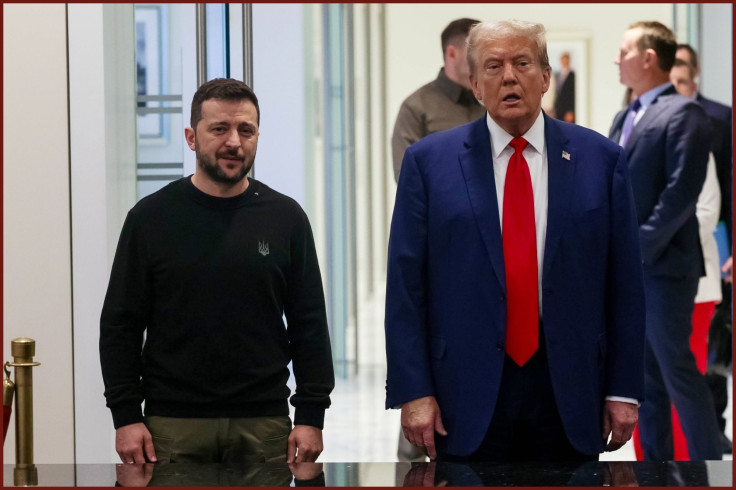
Nearly three years since Russia invaded Ukraine, talks about ending the violent conflict have resurfaced since President Donald Trump returned to the White House. On Feb. 14, Ukrainian President Volodymyr Zelensky met with U.S. Vice President JD Vance at the Munich Security Conference, where he requested "security guarantees" for Ukraine before any talks to end the war.
Zelensky's comments come days after President Trump had a "lengthy and highly productive" phone call with Russian leader Vladimir Putin in which they emphasized their shared desire to end the war.
But amid the recent change in policy under the Trump administration, the Ukrainian leader said on Feb. 13 that it was "not very pleasant" that Trump spoke first to Putin, adding that the main issue was to "not allow everything to go according to Putin's plan."
"We cannot accept it, as an independent country, any agreements (made) without us," Zelensky said, as reported by the Associated Press.
Shortly before sitting down with Vance, Zelensky reiterated his desire to only meet in-person with Putin after a common plan is negotiated with President Trump. Zelenskyy believes he is the key to ending the war, and said the U.S. president gave him his cellphone number.
Although Trump said earlier this month that he will continue funding Ukraine's war efforts, reports suggest he is highly skeptical of that aid and is expected to cut or limit it as negotiations get underway.
"The Ukraine war has to end," Trump told reporters Thursday. "Young people are being killed at levels that nobody's seen since World War II. And it's a ridiculous war."
Earlier on Feb. 14, Vance took advantage of his diplomatic trip and met separately with German President Frank-Walter Steinmeier, NATO Secretary-General Mark Rutte and British Foreign Secretary David Lammy.
During the meeting, he reiterated the Trump administration's call for NATO members to spend more money on defense, as currently only 23 of NATO's 32 member nations are spending 2% of the nation's GDP on defense.
"We want to make sure that NATO is actually built for the future, and we think a big part of that is ensuring that NATO does a little bit more burden sharing in Europe, so the United States can focus on some of our challenges in East Asia," Vance told Rutte, according to the Associated Press.
© 2025 Latin Times. All rights reserved. Do not reproduce without permission.







